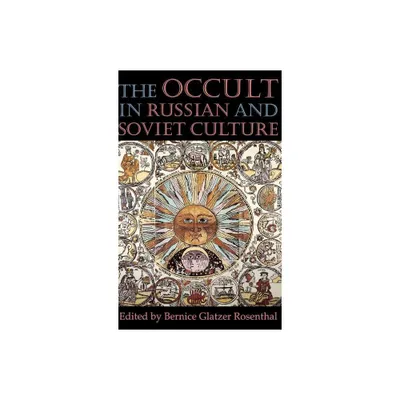Home
Soviet Culture and Power: A History in Documents, 1917-1953 / Edition 1
Loading Inventory...
Barnes and Noble
Soviet Culture and Power: A History in Documents, 1917-1953 / Edition 1
Current price: $88.00


Barnes and Noble
Soviet Culture and Power: A History in Documents, 1917-1953 / Edition 1
Current price: $88.00
Loading Inventory...
Size: OS
*Product Information may vary - to confirm product availability, pricing, and additional information please contact Barnes and Noble
A history of Soviet repression of cultural and artistic life, based on remarkable archival documents never published in English before
Leaders of the Soviet Union, Stalin chief among them, well understood the power of art, and their response was to attempt to control and direct
it in every way possible. This book examines Soviet cultural politics from the Revolution to Stalin’s death in 1953. Drawing on a wealth of newly released documents from the archives of the former Soviet Union, the book provides remarkable insight on relations between Gorky, Pasternak, Babel, Meyerhold, Shostakovich, Eisenstein, and many other intellectuals, and the Soviet leadership. Stalin’s role in directing these relations, and his literary judgments and personal biases, will astonish many. The documents presented in this volume reflect the progression of Party control in the arts. They include decisions of the Politburo, Stalin’s correspondence with individual intellectuals, his responses to particular plays, novels, and movie scripts, petitions to leaders from intellectuals, and secret police reports on intellectuals under surveillance. Introductions, explanatory materials, and a biographical index accompany the documents.
Leaders of the Soviet Union, Stalin chief among them, well understood the power of art, and their response was to attempt to control and direct
it in every way possible. This book examines Soviet cultural politics from the Revolution to Stalin’s death in 1953. Drawing on a wealth of newly released documents from the archives of the former Soviet Union, the book provides remarkable insight on relations between Gorky, Pasternak, Babel, Meyerhold, Shostakovich, Eisenstein, and many other intellectuals, and the Soviet leadership. Stalin’s role in directing these relations, and his literary judgments and personal biases, will astonish many. The documents presented in this volume reflect the progression of Party control in the arts. They include decisions of the Politburo, Stalin’s correspondence with individual intellectuals, his responses to particular plays, novels, and movie scripts, petitions to leaders from intellectuals, and secret police reports on intellectuals under surveillance. Introductions, explanatory materials, and a biographical index accompany the documents.


















